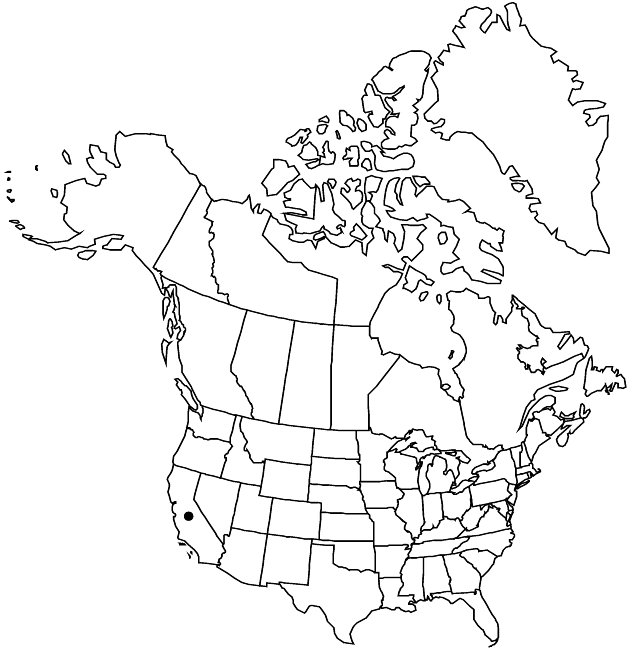Stephanomeria cichoriacea
Proc. Amer. Acad. Arts 6: 552. 1865.
Perennials, 40–100 cm. Stems single, simple or virgately branched, woolly-pubescent when young, glabrescent. Leaves green at flowering (spreading at bases); blades oblanceolate to spatulate, 10–20 cm, margins entire or irregularly toothed, teeth remote, faces woolly-pubescent, glabrescent; cauline much reduced distally, margins entire or irregularly toothed. Heads borne singly along branches. Peduncles ± 0. Calyculi 0 (or bractlets intergrading with phyllaries). Involucres 12–15 mm (phyllaries 20–25 in 2–3 series, appressed, 2–15 mm, unequal, puberulent; receptacles pitted, each socket 5-sided, surrounded by minute, raised, scaly fringe). Florets 10–13. Cypselae tan or grayish tan, 5–6 mm, faces smooth, grooved (grooves sometimes absent or only visible as fine lines or striations); pappi of 20–25, tan to pale brown bristles (persistent), wholly plumose. 2n = 16.
Phenology: Flowering May–Nov.
Habitat: Sandstone, granitic, volcanic, or serpentine soils in coastal scrub and foothill canyons, chaparral, mixed evergreen forests
Elevation: 50–1500 m
Discussion
Stephanomeria cichoriacea grows primarily in the coastal mountains from southern Monterey County to the San Bernardino Mountains, Santa Ana Mountains, and the Channel Islands.
Selected References
None.
